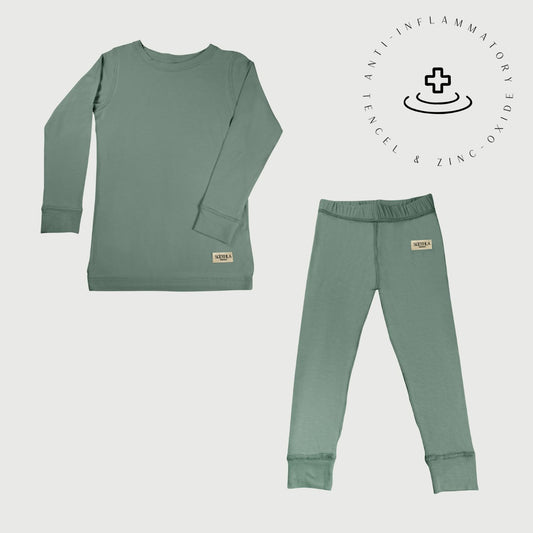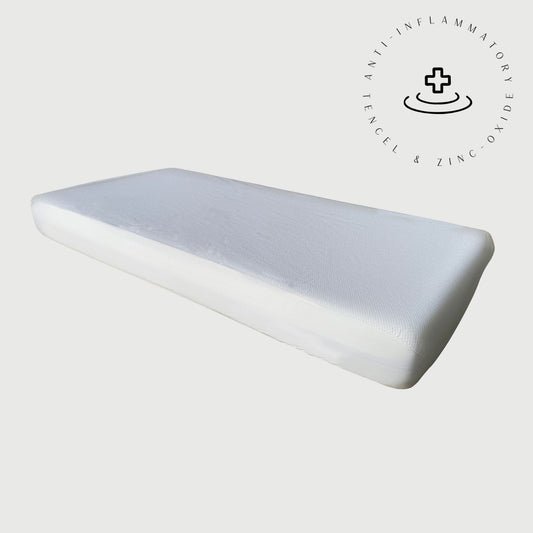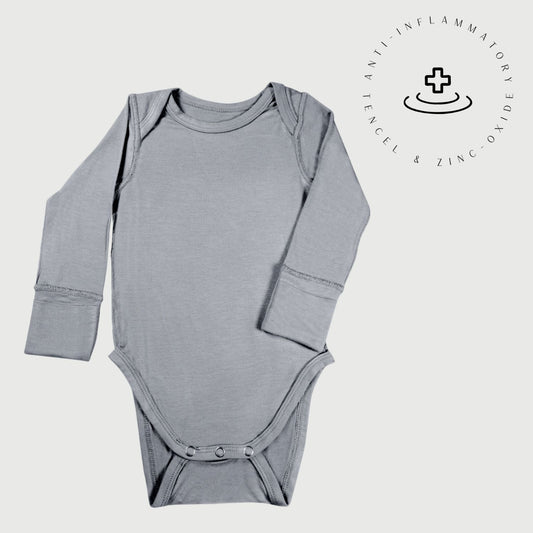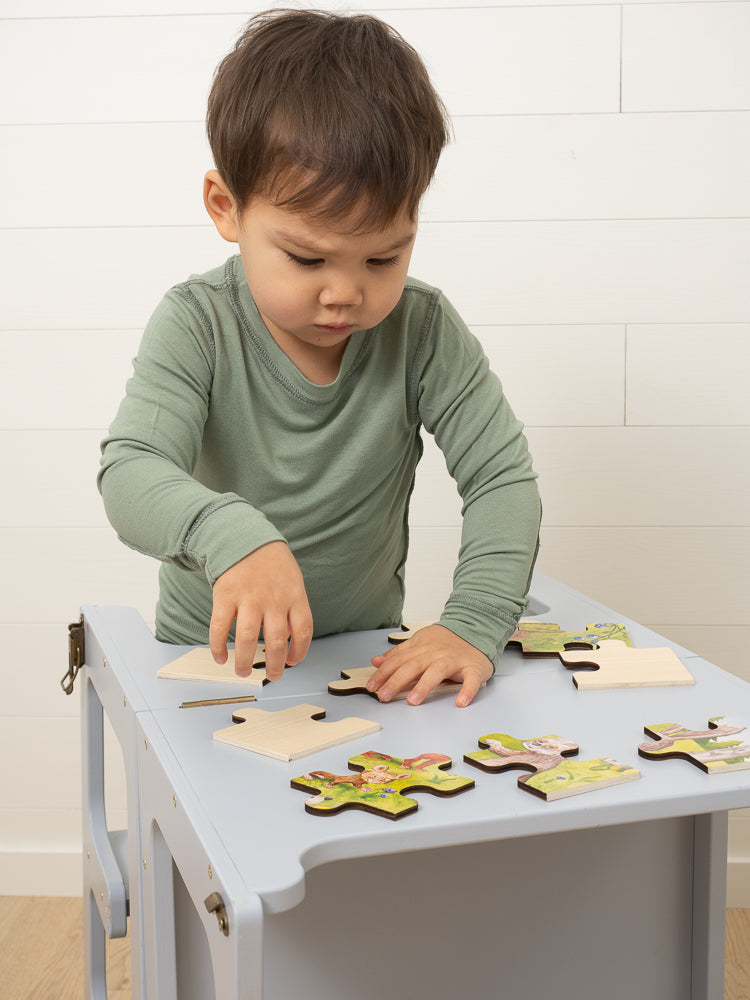Parenting a child with eczema can be challenging, but with the right strategies, you can help your child manage their symptoms and live a comfortable life.
Dressing Your Child in Different Temperatures
- Layer Up: During colder months, layering allows you to adjust to changing temperatures and prevent your child from overheating, which can irritate eczema.
- Natural Fabrics: Opt for soft, breathable fabrics like cotton, lyocell, or bamboo - or try out Soothla's eczema clothing, which are less likely to cause skin irritation. Avoid synthetic materials that can trap moisture and heat.
- Loose-Fitting Clothes: Loose-fitting clothing allows the skin to breathe and reduces friction, which can be irritating for eczema-prone skin.
Best Sleeping Temperatures
- Cool and Dry: A cool, dry environment is ideal for sleep, as it can help reduce inflammation and itching. Aim for a room temperature between 18°C (65°F) and 24°C (75°F).
- Hypoallergenic Bedding: Choose bedding, which is hypoallergenic and breathable like cotton or Soothla's anti-allergy bedding. Avoid materials like wool or polyester that can irritate sensitive skin.
- Regularly Wash Bedding: Wash bedding in hot water with a hypoallergenic detergent to remove allergens and irritants.
Additional Parenting Tips
- Moisturize Regularly: Keep your child's skin hydrated with a gentle moisturizer, especially after bathing or showering.
- Avoid Harsh Chemicals: Be mindful of the products you use on your child's skin, such as soaps, shampoos, and laundry detergents. Opt for fragrance-free and hypoallergenic options.
- Manage Stress: Stress can exacerbate eczema symptoms. Help your child manage stress through relaxation techniques, such as deep breathing or yoga. If you have a baby or toddler, make sure to follow clear routines during the day and to make life predictable thereby reducing stress triggers.
- Educate Your Child: Teach your child about eczema and how to manage their symptoms, empowering them to take ownership of their health.
- Connect with Other Parents: Joining a support group can provide emotional support and practical advice from other parents facing similar challenges.
By incorporating these parenting tips into your daily routine, you can help your child manage eczema and enjoy a better quality of life.







